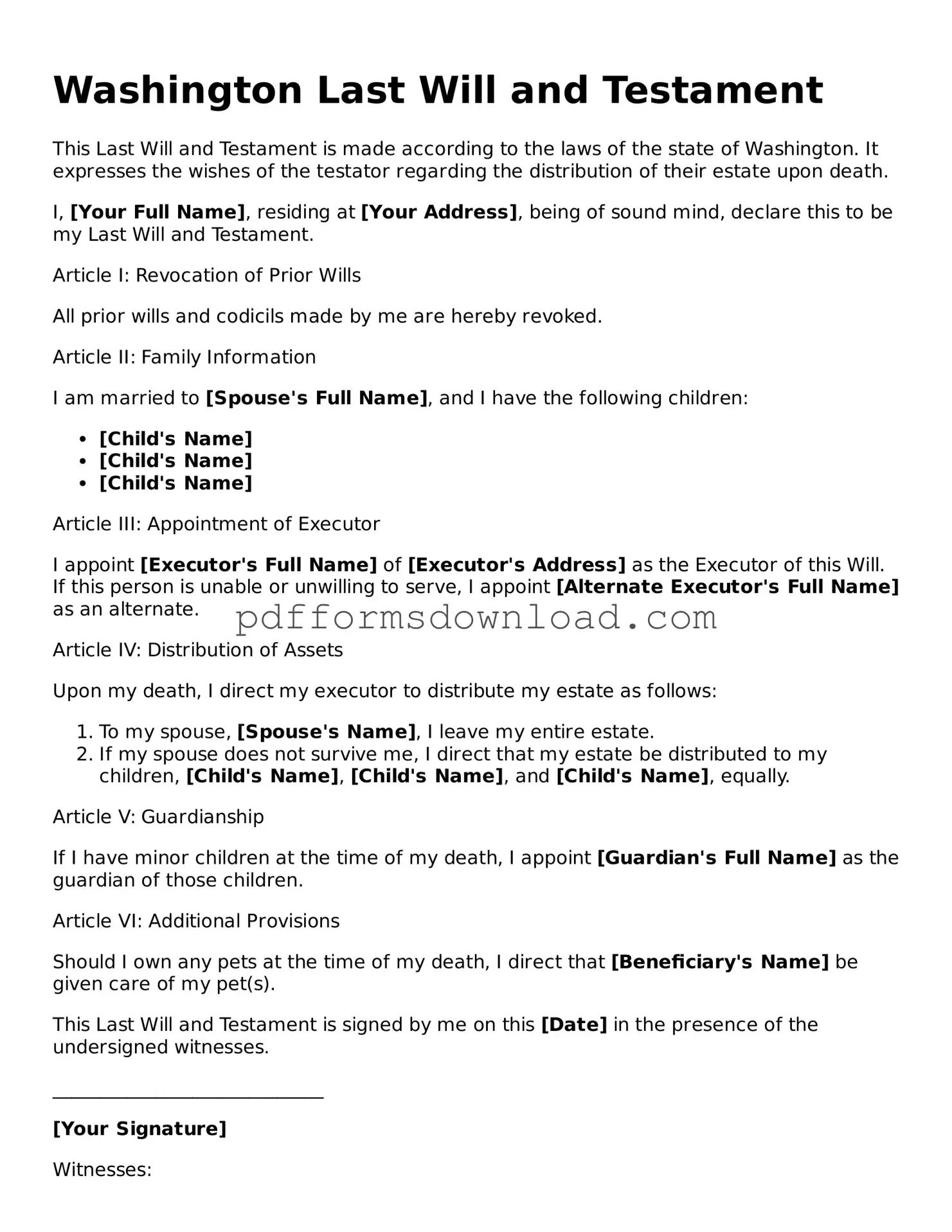What is a Last Will and Testament in Washington State?
A Last Will and Testament is a legal document that outlines how a person wants their assets distributed after their death. It can also designate guardians for minor children and specify funeral arrangements. In Washington, this document must meet certain legal requirements to be valid.
Who can create a Last Will and Testament in Washington?
Any person who is at least 18 years old and of sound mind can create a Last Will and Testament in Washington. This means they should understand the nature of the document and the implications of their decisions.
What are the requirements for a valid Last Will in Washington?
To be valid, a Last Will must be in writing and signed by the person making the will (the testator) or by someone else at their direction. Additionally, it must be witnessed by at least two individuals who are present at the same time. These witnesses cannot be beneficiaries of the will.
Can I change my Last Will and Testament after it is created?
Yes, you can change your Last Will at any time while you are alive and of sound mind. Changes can be made by creating a new will or by adding a codicil, which is an amendment to the existing will. It is important that any changes follow the same legal requirements as the original will.
What happens if I die without a Last Will in Washington?
If you die without a Last Will, you are considered to have died "intestate." In this case, Washington's intestacy laws will determine how your assets are distributed. Typically, this means your assets will go to your closest relatives, such as your spouse or children.
Can I write my Last Will and Testament by hand?
Yes, Washington recognizes handwritten wills, also known as holographic wills. However, they must be signed and dated by you, and the material provisions must be in your handwriting. It is advisable to consult with a legal professional to ensure it meets all requirements.
Is it necessary to have an attorney to create a Last Will in Washington?
No, it is not necessary to have an attorney to create a Last Will. However, consulting with one can help ensure that your will is legally sound and accurately reflects your wishes. An attorney can also provide guidance on complex situations, such as blended families or significant assets.
How do I revoke a Last Will and Testament in Washington?
You can revoke a Last Will by creating a new will that explicitly states the previous will is revoked or by physically destroying the old will. It is important to ensure that your intentions are clear to avoid confusion among your heirs.
What should I do with my Last Will after it is completed?
Once your Last Will is completed, keep it in a safe place where your loved ones can easily find it. You may also want to inform your executor or a trusted family member about its location. Some people choose to file their will with the county clerk for safekeeping.
Can I include specific funeral arrangements in my Last Will?
Yes, you can include specific funeral arrangements in your Last Will. However, keep in mind that these instructions may not be legally binding. It is often recommended to communicate your wishes to family members or create a separate document for funeral arrangements.

